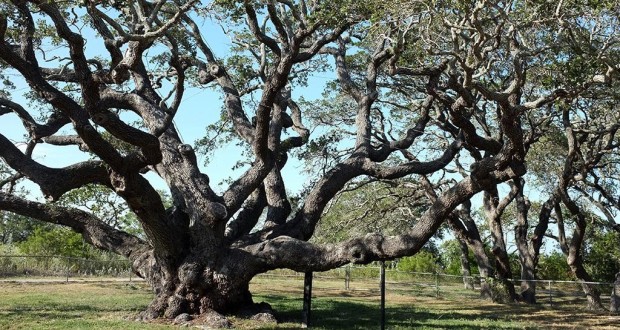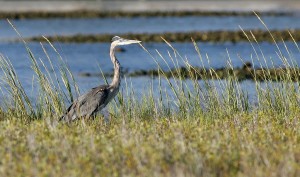Most of the mainland area of the park is devoted to camping, but its two trails are surprisingly wild. On a recent walk down the Turks Cap Trail (0.66 mile) I got into a staring match with a large fox at a bend on the path. It approach me, turned away and then came back for another look. You’re as likely to see a deer, raccoon, armadillo or cottontail rabbit.
Just up the road is “The Big Tree” – once recognized as the largest live oak in Texas, but surpassed in 2003 by another in Brazoria County. The “Big Tree” nonetheless deserves its name – with a trunk 35 feet around and a gangly crown that spreads almost 90 feet. The oak is more than 1,000 years old, making it already about 500 years old when the first European explorers reached Aransas Bay.
A short bridge takes you from the mainland to the island, located between St. Charles and Aransas bays and shared by birders and fisherman.
At one end of the island, a 1,620-foot lighted fishing pier reaches into the bay. Long oyster shell reefs curve off to either side, where you can see everything from a solitary Great Blue Heron to a flock of Brown Pelicans. The opposite end of the short island has a small boardwalk that juts out into the marshy wetlands. Between the bayfront, the marsh and the oak forest, the park attracts more than 300 bird species. It lays claim to the occasional Whooping Crane, but you’re much more likely to see them up the road at the Aransas National Wildlife Refuge.


You must be logged in to post a comment.